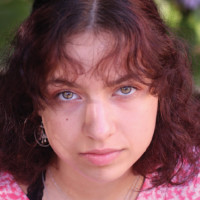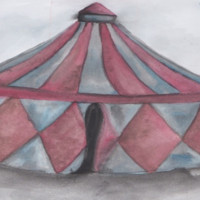In early June, about a week after students were released for the summer, an article by Grant High School senior Oliver Kline was published in the opinion section of The Oregonian. Kline had noticed a lack of “diverse opinion” at Grant and knew that other students felt similarly. The article — titled “Really? None of the 1,500 kids in my school leans conservative?” — explores self-censorship and the detriments of shaming others rather than conversing with them about differing opinions.
But for Kline, the purpose of writing the article was less about changing readers’ minds and more about generating discussion. “Discussing things and being able to openly share ideas is very important, especially in an academic environment with young kids,” he says.
The comment section online flooded with readers’ opinions about the subject matter of the article and it quickly circulated throughout the Grant community via social media. About a week later, another opinion piece was published in The Oregonian by Grant senior Caiden Reid.
Reid’s article, written in support of Kline’s, offers his perspective on an intolerance of conservative views that he has observed at Grant.
The reviews of both articles were mixed.
Kline’s article received many supportive messages on The Oregonian website. “I’ve had a lot of people reminisce about … ‘the good old days of debate,’” Kline says of the responses he received.
However, both Kline and Reid’s articles also garnered backlash from students at Grant. Photos were posted on platforms such as Instagram calling out the two articles for supporting the use of hate speech. A number of comments surfaced, many criticizing the legitimacy of the previous articles.
By August, a third editorial had been published by recent Grant graduate Cal Quinn-Ward and senior Amelia Ernst as a direct response to the other two pieces. Their main point? Both Kline and Reid’s articles ignored the greater power dynamics in the political landscape of the United States. “I think even the fact that so many people were supportive of their idea that we need to give conservative voices a platform shows that there really isn’t that power imbalance that a lot of other groups face,” Ernst says. “I feel like if it was an oppressed group that was saying that same point, it wouldn’t be met with the same reaction.”
Despite the differences within each of their pieces, the students all have one thing in common: the urge to express their opinions. All of the authors agree that they have been shut down in political conversations because of their age.“I feel like kids often days don’t get involved in politics because they see these … big talking heads on cable news,” says Kline. “It’s a different world to them.”
The publicity of these articles has given their voices the attention that is uncommon for students so young. The articles have totalled nearly 7,000 shares and 2,500 comments on OregonLive, The Oregonian’s online presence.
Kline is surprised and appreciative of being able to start the conversation. “People are writing their own opinion pieces, news channels are talking to me,” says Kline. “It’s just crazy to think that so much positive reaction can come from a 17-year-old writing about his feelings.”
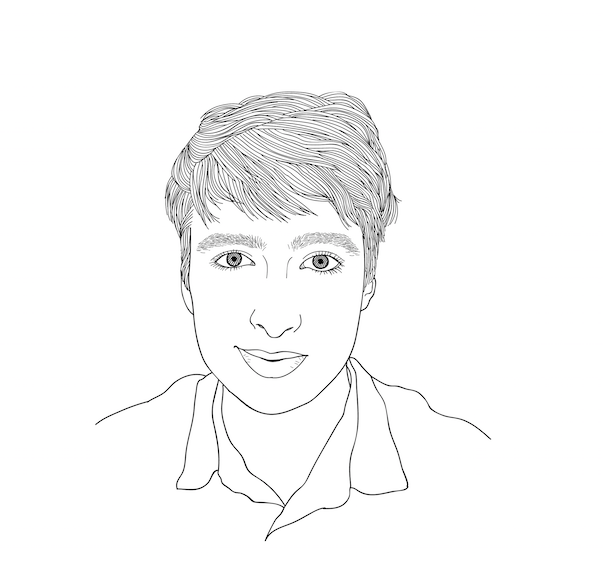 Oliver Kline
Oliver Kline
He/him
Why did you write your article?
Well, I think it was really an amalgamation of like, different events where people … either felt uncomfortable sharing their opinions if it was different from the political norm, or times where they did and they were shut down or censored or shamed. And I think the inciting incident per say was during one of the last Race Forwards of the year. All 20-plus students in that class agreed that there was something that needed to be done to foster a culture where different ideas can be expressed. Maybe they wanted to share their own opinions, maybe they wanted to hear someone else’s. But everyone in that classroom agreed that we need to have more diversity of thought. And it was that that really lead me to write the piece.
What was the process like for you, writing that article and getting it into the Oregonian?
Well for a while … I thought about writing something but I didn’t. I didn’t want to be the one kid sticking out like a sore thumb so I didn’t write it until the first day of summer. I pitched it to, like, 20-something different newspapers: Washington Post, The Hill, anything you can think of that’s big name. It took about a couple weeks and The Oregonian finally said, “Yeah, we’d love to have it front page of the opinion section.” So it was just a complete surprise, really great feeling.
So you’ve gotten a lot of positive reaction from this article?
Yeah. From students, but even more so a lot of people who are older and remember the times in which they debated all the time with their friends. Adults, teachers, everyone. It’s been surprisingly overwhelmingly positive given such a topic of such contentious nature.
Have you gotten any negative reactions?
Yeah I have. I’ve had a few people say my opinions were rooted in hate, I’ve had a few people say I’m just some know-it-all seventeen year old who doesn’t know what he’s talking about. Ironic there. I’ve had people write their own opinion pieces discussing the flaws in my arguments. And I think, what’s better than having people talk about it? Like that’s the ultimate goal, to start a conversation. And even if people disagree with me, they’re participating in a debate, which is quite literally all I’m asking for in this piece.
What did you think about the follow-up articles written by fellow Grant students and published in The Oregonian?
Well honestly, I was more ecstatic about that than anything else. Cal and (Amelia), they disagreed with me but they’re my friends, I’ve known them for a while, and the fact that they were able to write about their feelings and discuss it and debate it, and that Caiden too was able to express his ideas even though I bet the majority of the school would disagree with him … I think that’s very brave of them and I give them all of my respect for being able to discuss this.
What do you think this article accomplished?
I think more than anything, hopefully, fingers crossed, it’s started a culture in which people can talk about things. And that’s all I really want. Whether it’s about this piece or maybe gun control, whatever it is I just want people to be able to openly talk about things that they care about without fear of either censored by other peoples or maybe censored by themselves. That’s what I care about.
What do you think is the importance of sharing your voice/writing this article, or the importance of young people sharing their voices?
I would say, whatever ideology you are, whatever age you are, whatever you believe, the way you change people’s minds in support of your beliefs is by talking to them and maybe even more importantly, listening to them. I have had a lot of people say, ‘you can’t change the minds of insert people,’ let’s say Trump supporters. You can’t change their minds. Tell that to the Nixon supporters. Tell that to the supporters of the Iraq War. It went from 89 percent to, like, 30-something percent in a matter of a few years. That didn’t happen because we shamed those who disagreed with us. It happened because we debated it.
And I think the importance of getting your voice out and getting everyone else’s voices out, is that we are closely, slowly but steadily, finding a closer approximation to a societal truth by debating it. Whenever we debate things, slowly in a marketplace of ideas, bad ideas get rooted out, good ideas get supported. And it’s through debate and discourse that the things we believe in get popular and get put into place in this country. I think if anything, this article has shown more than anything… one voice could start a conversation. Even if you’re a seventeen year-old kid from a progressive city in your typical high school, you can start a conversation. You can change your city, your school, your country just by talking about things and starting a conversation. Because this is our future that we’re looking at.
– Interview by Jessica Griepenburg
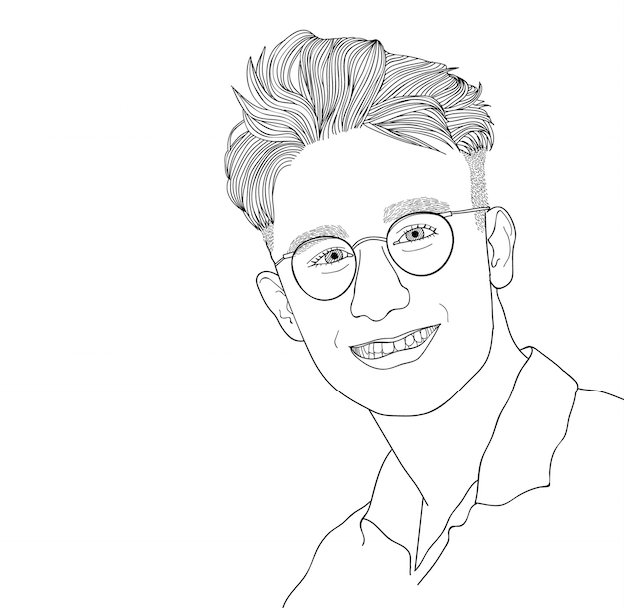 Caiden Reid
Caiden Reid
He/him
What led you to write your Op-Ed?
I originally wrote my piece as a letter to the principal, Dr. (Carol) Campbell. Unfortunately, I have yet to receive a reply from her. I wanted to share my experiences thus far at Grant with a larger audience, feeling that at least a few people in our community share similar ideas and experiences. Realizing that Dr. Campbell, as someone who is complicit in the issue of ideological intolerance, may not acknowledge my letter, I decided to also send it to the Oregonian, hoping to have it published in order to shed more light upon the issue.
What was the response to your Op-Ed by the Grant community and the wider Portland community?
It was a mixed bag. I was happy to hear classmates at Grant and students at other high schools in Oregon reach out to me and express that the same problem exists within their community. It was also good to receive feedback on my piece and to hear other perspectives on the issue. However, many of the comments left on the article helped further illustrate my point. Comments from all ends of the political spectrum were filled with name calling, irrational thought, and unfair assumptions about others’ beliefs.
What are your opinions on the original story published in The Oregonian written by Oliver Kline?
I was very glad to hear what Oliver had to say about the political climate at Grant, especially because of his liberal bias. It helped reassure me that my perception of ideological intolerance at Grant was not due to my own implicit bias.
How do you feel about the follow-up story by Amelia Ernst and Cal Quinn-Ward?
I appreciate the dialogue. However, I feel that their representation of Grant was far from the truth. We don’t attend some reactionary, bigoted school. The piece seemed like it was written in a defensive manner, as if the writers felt that Oliver’s piece and mine had “caught” them. To me, it felt that the writers had inaccurately attempted to portray Oliver and me as racists.
What does it mean to you to be young and have your writing published in the Oregonian?
I feel accomplished, especially because it wasn’t acknowledged by Dr. Campbell. It is profoundly gratifying to know that an editor of a well-regarded newspaper felt my ideas were valid enough to publish.
What do you think is the importance of youth voices in politics?
The youth will always be important in politics. We, just like any other demographic, are affected by government decisions, so why should we be excluded from political activism?
Have you ever experienced having your ideas shut down because of your age?
Yes, but this is understandable. The youth must realize that we can stand to learn a lot from older generations. We can look back upon the ideas of our ancestors and recognize what worked and what didn’t and base our ideals upon that knowledge. That being said, I fully recognize the irony of advocating for youth voices in politics.
What do you think having the Op-Ed published accomplished?
I hope that my Op-Ed helped spark a change, primarily among teachers. Teachers need to acknowledge that their role in school is to be an impartial, unbiased educator, devoted to developing students into rational, free-thinking adults. I feel that my piece would have accomplished its goal if teachers at Grant demonstrated this consistently throughout the school year.
What have you learned from the experience? How have you been affected by the experience of publishing a piece in the Oregonian?
I’ve learned that people are very vindictive when their beliefs are challenged. I ask that everyone, when discussing politics, try to look at ideas objectively. We must disassociate ideas from ideology, and not make assumptions based on someone’s political affiliation. –
– Interview by Stella Kondylis Breeze
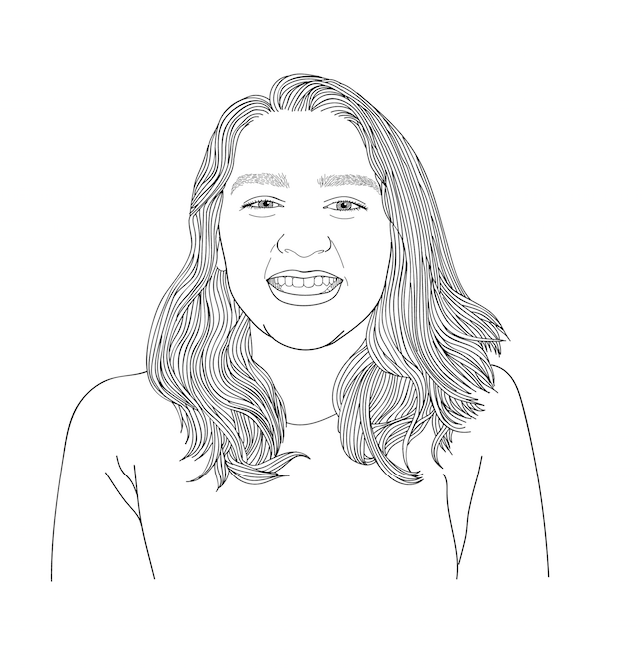 Amelia Ernst
Amelia Ernst
She/her
Your piece was unique in that it was the only one of the op-eds that had two writers. Was it nice to have a second person to work on it?
For sure. Because (Cal) had perspectives I hadn’t thought about or he was like more knowledgeable about, having two people to work on it kind of helped make it a more well rounded piece.
What was the writing process like?
It was interesting, I had never written an op-ed with someone like collaboratively. (Cal and I) both wrote different parts separately and then we talked on the phone for two hours and just put it all together over the phone. We didn’t meet in person at all. And then he sent it to some people to have them read and I think the biggest issue was figuring what to do with it because we didn’t think it was going to get published in the Oregonian. Just from working with media in the past, like publishing three pieces on the same issue was probably unlikely especially in a big newspaper like the Oregonian. The whole thing was kind of surprising.
What were your thoughts as you were reading the other op-eds?
Most of it didn’t come to me right away. When I first read Oliver’s, the first thing that came to mind was like the rhetoric used could be very easily used to justify complacency and hate.
What do you think the impact is of having so many young people be able to voice their opinions on such a large or mainstream platform?
It’s really interesting because to be honest, I don’t think our op-ed has changed anything. Like one piece of writing isn’t gonna change peoples’ minds. So it’s interesting in that people are reading it and I think it’s cool that young people have a platform because I think a lot of the time students are kind of disregarded. But I don’t know how much it’s actually changing things or impacting things.
I’ve had a couple op-eds in the Portland Tribune, one was about school climate and the other was about police officers in schools. And I’ve done an interview with OPB and an interview with Willamette Week. Almost all of those occasions had something else to go with it like policy or a report. I think in a way that felt a lot more meaningful because it wasn’t just an opinion piece.
If you don’t think it is really changing anything, why did you choose to write the piece?
I just had things that I wanted to say and I personally think I learn best and develop my thoughts best through writing so I thought writing it would be an interesting process, at the very least to get out what I felt and my thoughts. If no one read it, I would be okay with it. For me it was more like the process of writing was really what I enjoyed and what helped me the most (to) kind of comprehend the things that were said in Oliver’s and Caiden’s.
– Interview by Ari Tandan

